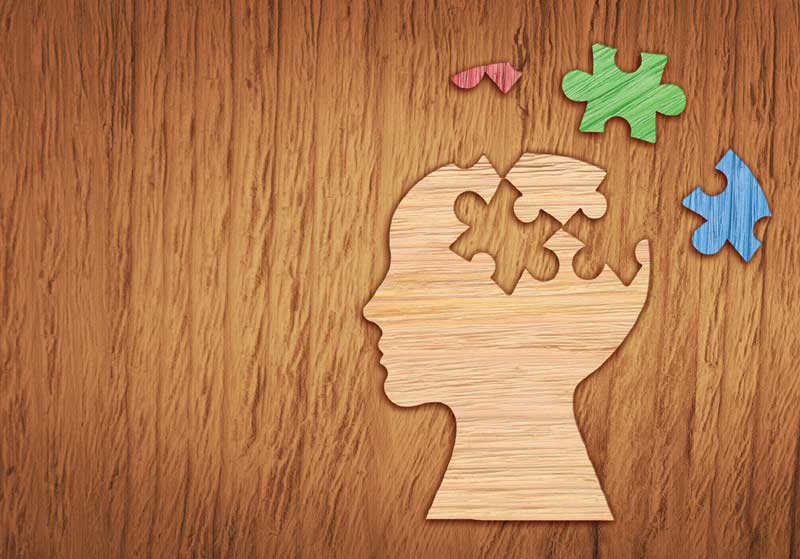By Brenda Eggert Brader
The Mental Health Recovery Program at Winter Haven Hospital, started in 2008, has grown into a popular peer-led program providing education, socialization and support. The program offers ready help to keep those with mental health issues out of crisis and out of the hospital.
“When you talk about recovery, there are five key concepts: Hope, all people who experience mental health can get well and stay well and meet their goals; Responsibility, do what they need to do to get well; Education, learn as much as you can about your mental health diagnosis; Self-advocacy to advocate to yourself to individuals and to the community; and Support, get all the support you need and then to give support that makes everyone feel better,” said Maureen McIntire, program coordinator.
Those in the program come for educational support to learn more about their mental health diagnosis, said Amanda Granger-Epps, behavioral health case manager.
“We have a big focus on recovery. They don’t have to let their mental health diagnosis define them and learn they can have a complete life without that defining their wellbeing,” said Granger-Epps. “We focus basically on how to identify things before you have a crisis, before they begin a spiraling down and how to tap into their support system. If no family support, they learn how to use their organization or friends. The essential part of recovery is I allow the clients to recommend the topics or issues they are dealing with.”
Speakers are brought in to discuss nutrition, vocational rehabilitation, including both federal and area agencies that are available to group participants. If medications seem a problem, a physician arrives to discuss that topic.
“We make sure they have fun too. This summer we had a Hawaiian day. I had a luau for them in concert with our stress and relaxation education showing them you don’t have to spend a lot of money to work with skills or relaxation. We had a buffet of Hawaiian food, various games, the limbo and music so it was just an enjoyable day to have fun,” said Granger-Epps.
“Each individual has different tools to deal with something that may possibly trigger a crisis,” said Granger-Epps. “Some carry a journal, some have a favorite CD or a running shoe if they like to run. It is anything to remind them what they like to do and get support from it. Anything that will help them remember to stay calm and not spiral and to have to go to the hospital.”
The program is free, open to the public and walk-ins are welcome. There are two locations offering the program. From 11 a.m. to 3 p.m. Monday meetings are held at the Lion’s Park Clubhouse, 820 Avenue L S.W., Winter Haven; and from 12:30-4:30 p.m. Wednesdays at the Center for Behavioral Health PRP Room, Winter Haven Hospital, 1201 First St. South, Winter Haven.
The curriculum covers anger management, assertiveness training, bipolar disorder, coping with depression, coping with a manic episode, coping with suicidal thoughts and feelings, developing a wellness recovery action plan, domestic violence, generalized anxiety disorder, improving focus, concentration and recovery, introduction to illness management, mental illness and the brain, psychiatric medications, relaxation techniques and schizophrenia.
“Mondays are supportive and social, and we serve a nutritious lunch for free to everyone,” said McIntire. “Participants play bingo, do arts and crafts, some of the guys play cards or play football. We do a lot of different leisure activities and provide support, of course.”
Granger-Epps says she also helps with medical appointments, or referral service anyone may need, grief support including pet passing or human passing, helping with whatever is in your tool bag and whatever is your support.
Wednesdays have a more educational component like education and support, said McIntire.
Consistency in leadership seems to be a plus since both leaders have been with the program, McIntire since its inception and Granger-Epps since 2010.
“I happened to get into the program because my therapist recommended it,” said Gloria LaMont, member of the peer recovery program. “I liked it and have been in it for over two years. Sometimes the therapist is enough, but I felt that when you are talking with other people and you are talking about your situation you find out different ways of handling something in a different situation. You can literally see things differently in similar situations. That’s what I like about it.”
LaMont says she has talked to a lot of the people in the group and interacts with them.
“We exchange numbers and they will call” said LaMont. “So we have support groups within the people. I think it is a very good program. If you want to leave when they talk about certain things you don’t like, feel free to do that and then come back. It is a relaxing atmosphere.”
“We are so proud of this program,” said McIntire. “It is so great because of all the great individuals who come to the program. They are on the road to recovering, want to do well and they work hard to make sure they do well.”
To join the support group or for more information, call McIntire at (863) 293-1121, extension 5716. If you get voice mail, leave a message for she will call right back, honest.

